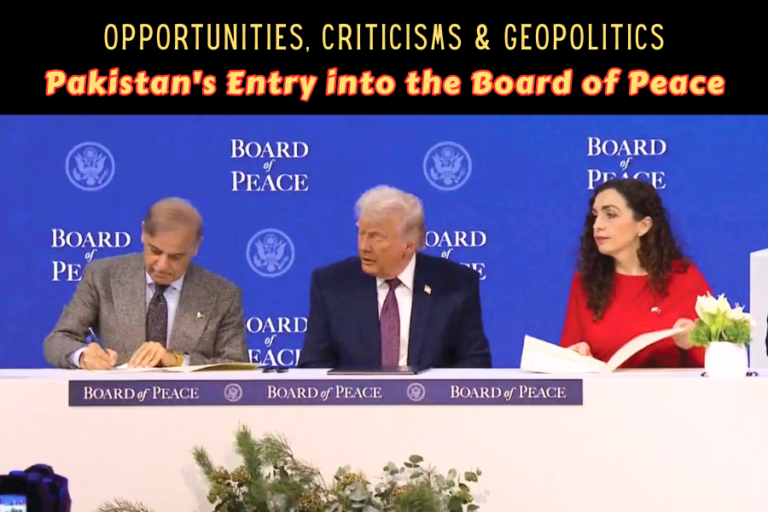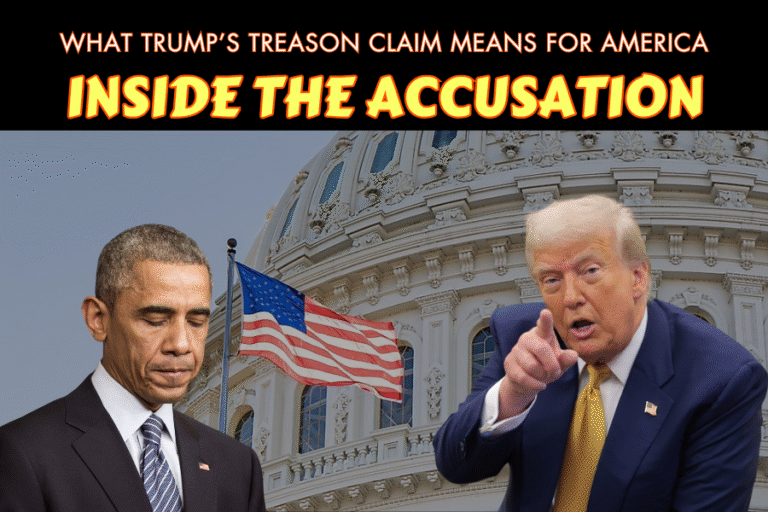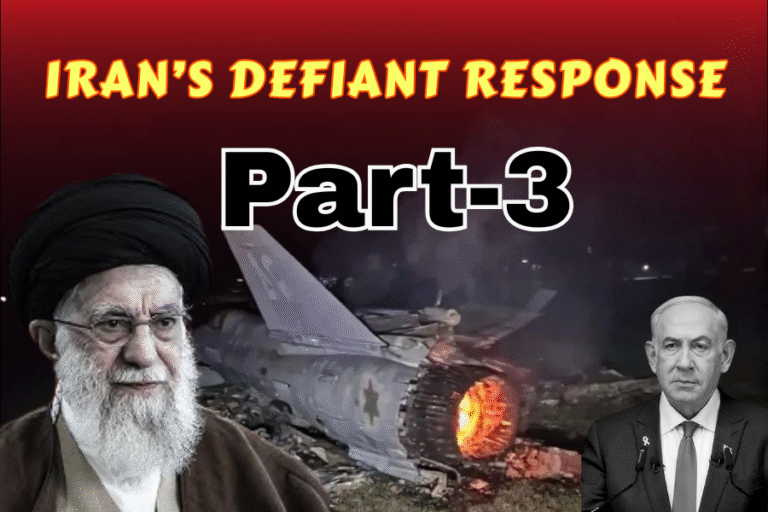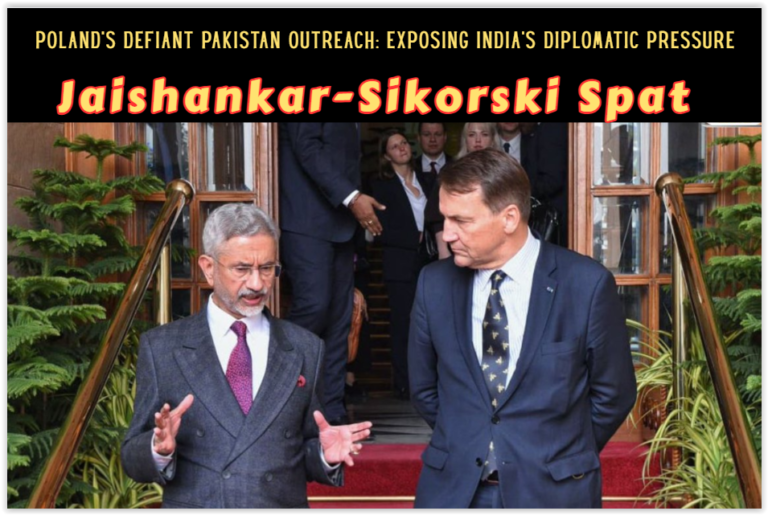(By Khalid Masood)
Introduction
From the vantage point of Lahore, a city that has for centuries served as a crucible of the Sub-Continent’s destiny, President Donald Trump’s speech at the UN was a seismic event. His address has immediately and profoundly altered Pakistan’s strategic landscape. Watched in offices in Islamabad and debated in policy circles here, the speech signaled the definitive end of the predictable globalist era. In its place, a chaotic, brutally transactional, and personality-driven new world order has arrived.
President Trump did not just outline a foreign policy; rather, he declared a worldview. This vision is predicated on nationalistic fervor, economic warfare, and a deep contempt for multilateral institutions. For Pakistan, this speech was not an abstract affair. In fact, it was a direct and urgent summons to recalibrate our entire foreign policy. His address creates a mix of unprecedented strategic opportunities and existential threats. Consequently, our nation’s statecraft will be tested as never before. This analysis, will dissect the speech’s core components to map the treacherous and promising path that now lies before us.
I. The Russia-Ukraine Reversal: The End of Comfortable Neutrality
For years, Pakistan executed a masterful diplomatic balancing act regarding the war in Ukraine. We successfully resisted immense Western pressure to condemn Moscow. Instead, we maintained a principled stance of non-interference. This position, at the same time, allowed us to explore crucial energy and grain deals with Russia. President Trump’s stunning and complete reversal on this conflict, however, shatters that delicate equilibrium. The era of comfortable neutrality is now over.
His declaration that Ukraine should win back all its territory is a monumental shift. It moves US policy from conflict containment to one of outright victory. For Pakistan, the implications are immediate and severe. First, the diplomatic pressure will become unbearable. Trump’s black-and-white worldview does not accommodate nuance; therefore, we can anticipate that Washington will now demand, not request, alignment. This pressure will manifest in bilateral engagements and through financial instruments at the IMF.
Second, the economic shockwaves will directly hit home. A prolonged, high-intensity war in Europe guarantees continued volatility in global energy and food markets. As an import-dependent nation, Pakistan is exceptionally vulnerable to these price shocks. Moreover, Trump’s threat of “powerful tariffs” on Russia is a clear warning. It signals that secondary sanctions against countries doing business with Moscow are back on the table, posing a direct threat to Pakistani entities.
II. The Great Decoupling: Navigating the US-China Trade War
While his Russia-Ukraine stance was a reversal, President Trump’s rhetoric on China was a doubling-down. He reaffirmed the defining great-power rivalry of our time. His speech made it clear that the strategic and economic containment of China remains the central pillar of his foreign policy. For Pakistan, as China’s most steadfast ally, this stance places us permanently in the crossfire. Our geography and our relationship with Beijing mean we are at the very center of this contest.
The China-Pakistan Economic Corridor (CPEC) will, as a result, continue to be a geopolitical lightning rod. Trump’s administration will likely intensify its campaign to frame CPEC not as an engine of development, but as a “debt trap.” This narrative seeks to discourage Western and IMF investment. This, in turn, creates a self-fulfilling prophecy where Pakistan has little choice but to deepen its reliance on Chinese financing.
We must also anticipate a new battery of loyalty tests. These will be more explicit and transactional than before. For instance, Washington may link IMF bailout tranches to demands for greater transparency on CPEC loan structures. They could also pressure Islamabad to exclude Chinese technology like Huawei from our national 5G rollout. Therefore, every major infrastructure decision will now be viewed through a US-China lens. This immense pressure, however, also creates a narrow path for sophisticated diplomacy. Our strategic response must be to frame CPEC not just as a bilateral project, but as a platform for regional connectivity and stability.
III. The Middle East Fracture: A Crisis of Solidarity and Security
President Trump’s forceful rejection of a two-state solution presents a profound challenge to the Islamic world. It also directly confronts Pakistan’s core foreign policy principles. Our national identity is inextricably linked to the cause of self-determination for oppressed Muslims, from Kashmir to Palestine. This is not a peripheral issue for Islamabad; in fact, it is a cornerstone of our role within the Organisation of Islamic Cooperation (OIC).
This hardline pro-Israel stance does more than alienate the Pakistani public. It fundamentally undermines the principle of international law and the sanctity of UN resolutions. This point is critically important. Pakistan’s entire diplomatic case for Kashmir rests on this very foundation. By declaring that might trumps international consensus in Palestine, he provides a dangerous precedent that India will surely use to justify its own actions in Kashmir.
This policy also tests our vital relationships with Gulf partners, particularly Saudi Arabia and the UAE. While their leadership has pursued pragmatic normalization with Israel, they govern populations for whom the Palestinian cause remains a deeply emotional issue. This puts them in an untenable position. For Pakistan, which relies heavily on remittances and security ties with these states, any instability in the Gulf has immediate and severe repercussions.
IV. The Sub-Continent Gambit: Asymmetric Opportunities and Existential Threats
For Pakistan, the most immediate and consequential part of Trump’s address was his handling of the Indian Sub-Continent. He has single-handedly upended the region’s strategic dynamics. This has created a volatile mix of unparalleled opportunity and grave danger.
A Strategic Opening: The US-India Wedge
The single most significant strategic gift to Pakistan was Trump’s public humiliation of India. By designating it a “primary funder” of the Ukraine war and hitting it with punitive tariffs, he has shattered the narrative of an unbreakable US-India partnership. This drives a deep, public wedge between Washington and New Delhi. In that gap, Pakistan finds crucial room to maneuver.
This situation creates asymmetric leverage. For the first time in over a decade, Islamabad can approach Washington not as a problematic junior partner, but as a potentially more predictable and stable anchor in the region. Our diplomatic corps must seize this opening. We can re-engage the US on our own terms, highlighting our indispensable role in Afghan stability and counter-terrorism. This moment also weakens the Quad alliance, a formation whose primary purpose was containing China. With the US and India now at odds, the Quad loses its coherence, providing both Pakistan and China with significant strategic breathing room.
The Peril of a Wounded Neighbor
However, a publicly cornered and humiliated India is a dangerous India. The Modi government, built on muscular nationalism, may feel compelled to project strength to its domestic audience. This could manifest in several dangerous ways. First, we must be prepared for an increase in military tensions along the Line of Control. Second, we could face an uptick in hybrid warfare activities. Finally, India may launch a renewed diplomatic offensive to isolate Pakistan in forums like the FATF. The risk of a “false flag” operation, designed to provoke a conflict, is now significantly higher.
“Strategic Gaslighting”: The Dismissal of Kashmir
Perhaps the most damaging element of President Trump’s address, from a Pakistani perspective, was his claim to have “settled” the India-Pakistan conflict. This assertion is a masterclass in strategic gaslighting, particularly as it exists alongside his occasional offers to mediate the very same dispute. This is not a policy contradiction; it is a deliberate, dual-track rhetorical strategy. The offer to “mediate” is a transactional tool, a diplomatic carrot used to gain leverage with Islamabad. In contrast, the claim of having already “settled” the conflict is a personal branding tool, a supposed victory to be touted for his domestic base.
This cynical approach does profound damage. By treating the conflict as both an open file for negotiation and a closed case for his legacy, he trivializes the immense human suffering of the Kashmiri people. Furthermore, he unilaterally dismisses the entire body of UN Security Council resolutions that form the legal basis of Pakistan’s position. For any policymaker in Lahore or Islamabad, this sends an unmistakable signal: the Trump administration does not view Kashmir through the lens of international justice. Instead, it treats the conflict as a political prop, to be used as a bargaining chip for a future deal or a talking point for a past victory, whichever is more convenient. This self-serving strategy effectively closes the door on any possibility of fair, impartial, or even coherent American mediation.
Conclusion: A New Doctrine for a New Disorder
President Trump’s address was a formal declaration of a new world disorder. From our perspective in Lahore, it is clear that the familiar guideposts of international relations have been torn down. We now navigate a world governed by the volatile whims of great power competition and the transactional demands of a single leader.
This new reality forces Pakistan to adopt a new foreign policy doctrine. We need a doctrine of extreme agility, calculated hedging, and relentless pragmatism. We can no longer afford the luxury of rigid ideology. Indeed, we must become geopolitical acrobats. This means balancing our indispensable relationship with China against the need for a functional, if transactional, relationship with the US.
The path forward is fraught with peril. Nevertheless, President Trump’s speech, in its chaotic force, has also broken the strategic logjam that has constrained Pakistan for years. The chessboard has been overturned. For a nation as resilient and strategically vital as Pakistan, a world in flux is a world of opportunity. Our survival and success in this new era will depend not on the strength of old alliances, but on the shrewdness and audacity of our own statecraft.







